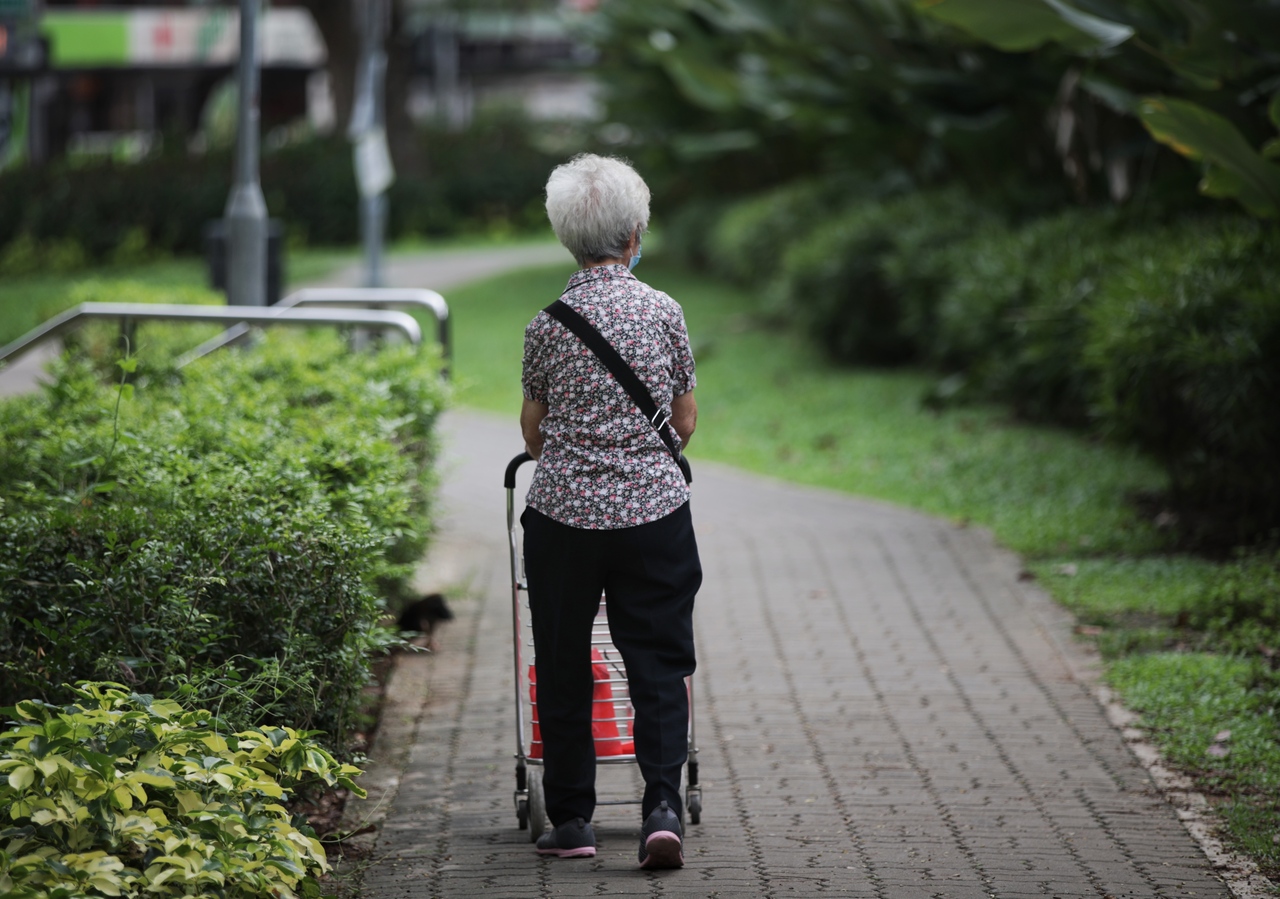Elderly people may feel lonely, isolated even while living with family: Study
Sign up now: Get ST's newsletters delivered to your inbox

The study found that 6 per cent of the seniors were socially disconnected.
ST PHOTO: GIN TAY
SINGAPORE - Elderly folk living with their families may be surrounded by people but they can still feel socially isolated, a new study has found.
Of the 1,021 seniors who provided data that suggested social disconnection, 804 lived with their family, 70 lived with other relatives or friends and 147 lived alone.
More than half of those who felt socially disconnected said they do not have someone they can go to for help, the study said.
The study's lead researcher, Professor Koh Woon Puay, said: "Although living alone is associated with social disconnection, most socially disconnected individuals lived with family."
Prof Koh is from the Healthy Longevity Translational Research Programme at the NUS Yong Loo Lin School of Medicine.
The research involved data collected from 16,943 seniors who were part of the Singapore Chinese Health Study. The participants were on average 73 years old.
Data from this study, which was first collected in the 1990s but has had three follow-ups since, has contributed to about 400 papers.
While the recent research was carried out with data collected from only Chinese respondents, Prof Koh said it is applicable to other races.
The team from the National University of Singapore (NUS) - which was also helmed by Associate Professor Feng Qiushi from the Faculty of Arts and Social Sciences - examined the data for the socio-demographic and health factors linked to social disconnection among the elderly in Singapore.
It also looked at how their living arrangements play a part as well.
Social disconnection is the lack of social, emotional and physical engagement with other people, and is strongly linked to social isolation and loneliness.
The research defined participants who are socially disconnected as those who responded in the lowest 10 per cent of a scale of perceived social support, and who spent less than one hour a week in groups of more than three with people outside of their family.
It found that 6 per cent of the seniors were socially disconnected.
In this group of 1,021 seniors, 62 per cent indicated they did not have one particular person they trusted and to whom they could go to when faced with personal difficulties.
By way of comparison, only 6 per cent of the rest of the 16,943 participants felt the same way.
Among those who lived alone, men were twice as likely to experience social disconnection than women.
The data also showed that regardless of living arrangements, factors such as low education level, cognitive impairment, fair or poor self-rated health, depression and limitations with daily living activities were all linked to experiencing social disconnection.
Madam Crystal Tan, who was involved in the latest iteration of the study as an interviewer, described during a press briefing the experiences of an elderly man living with his family.
She said he had previously led an active lifestyle and would meet friends to play chess or watch getai, but after a mild stroke, he was afraid to leave his home.
"He was afraid that he would fall, or get ill and cause trouble for his family, so he stayed at home instead to watch television or listen to the radio," said Madam Tan.
Prof Koh said it is an example of an elderly person who is socially disconnected despite living with family.
She added that community intervention should be targeted at elderly men living alone as well as older adults in poor health who live with their families.
They could encourage individual and personal productivity, including paid work, volunteerism and learning new skills, to help create opportunities for social interaction and maintenance of cognitive function.
Prof Koh said the study is a reminder that social disconnection could become a bigger issue in the near future, given the ageing population and with more elderly people living alone.
Prof Koh and Prof Feng will next be collaborating with other researchers and agencies to carry out the SG70 Towards Healthy Longevity cohort study.
The new study aims to examine the effects of biological, lifestyle and socioeconomic factors that prevent people from ageing healthily and productively.
It will recruit 3,000 participants between the ages of 65 to 75 from the Chinese, Malay and Indian ethnic groups, and will be studied for the next 10 to 15 years.


